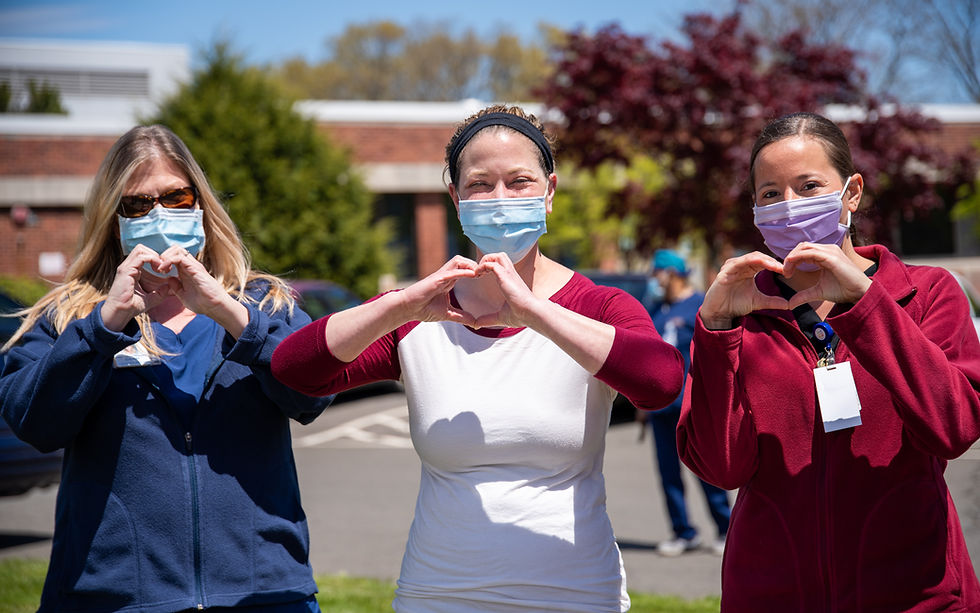Coaching for Intentional Change
- Sep 30, 2020
- 4 min read

A new article titled Leadership Coach Effectiveness as Fostering Self-Determined, Sustained Change, features Intentional Change Theory developed for leadership coaching by Richard Boyatzis. This theory is quite similar to the Wellcoaches vision tool, developed independently for the Wellcoaches curriculum in 2002 for health and wellness coaches.
The Wellcoaches blog on this article is adapted from an Institute of Coaching (IOC) research dose co-authored by Margaret Moore. RESEARCH DOSES are translations of top scientific articles into coaching practice.
Become an IOC member at the WELLCOACHES SPONSOR RATE (annual $100 rather than full $180 for a member donation) to access the research doses and a treasure chest of coaching resources, including don’t miss IOC conference videos.
The intentional change process walks through five discoveries for optimal and sustained change.
1. Envision, Articulate and Commit to an Ideal Self The ideal self is the one we aspire to be, doing what we desire to do or become, as opposed to what we may feel obligated to do or become.
2. Assess the Real Self in Comparison to the Ideal Self The real self, in contrast, is the current state or snapshot of one’s knowledge, capabilities, traits, etc. The real self serves as a benchmark or point of comparison in relation to the ideal self. It’s invaluable to get input from others we know or work with, by asking directly or through coaching stakeholder interviews or 360 surveys.
3. Develop a Learning Agenda to Transform the Real Self Toward the Ideal Self The learning agenda articulates how to begin the journey from the real self to the ideal self, using the strengths one has as a key resource to create the plan for change.
4. Practice and Experiment with Elements in the Learning Agenda As the practice occurs, one is testing new ways of behaving and gathering data on the tests. Through persistence, these new behaviors will lead to a transformation of the real self towards the realization of the ideal self.
5. Develop Trusting, Reassuring Relationships That Provide Support and Encouragement During the Other Four Discoveries and Throughout the Change Process. The role of a coach is critical, as the coach’s role is to facilitate intentional change by supporting the client as s/he moves through the various discoveries. The discoveries bring a bonus as they also help satisfy the THREE CORE PSYCHOLOGICAL NEEDS DEFINED IN SELF-DETERMINATION THEORY (i.e. autonomy, relatedness, and competence).
The authors of the article then connect the three core needs in self-determination theory to the five discoveries of ICT with well-crafted coaching questions.
Need: Autonomy Coaching Questions:
-What are your core values and beliefs? (Ideal Self) -Imagine it is the year 2030, and a documentary on your ideal life is being filmed. What are you doing? By whom are you surrounded? (Ideal Self)- -What do you wish your legacy to be? (Ideal Self) -What feedback have you received that will help you move toward your ideal self? (Real Self) -What surprises you about feedback you are getting? (Real Self) -What actions do you want to take to get you closer to your ideal self? (Learning Agenda) -What are you willing to say “no” to in your life to allow you the time and energy to pursue your learning agenda? (Learning Agenda) -Out of the actions you chose to take in your learning agenda, which actions are helping the most to get you closer to your ideal self? (Experimentation and Practice)
Need: Relatedness Coaching Questions:
-Who helped you the most to be the person you are today? (Ideal Self) -Who is the best role model for you? (Ideal Self) -Who do you admire most and would like to emulate? (Ideal Self) -What impact would you like to have on others? (Ideal Self) -How do others see you differently than you see yourself? (Real Self) -What strengths do others see in you that you see differently? (Real Self) -Who in your life will be most supportive of your learning agenda and why? How can you engage their support? (Learning Agenda) -How might the actions in your learning agenda help you build stronger relationships with others? (Learning Agenda) -How have the actions you are experimenting/practicing helped you build stronger relationships with others? (Experimentation and Practice)
Need: Competence Coaching Questions:
-What are your enduring strengths and unique capabilities to carry forward? (Ideal Self) -What core aspects of your identity are central to who you would like to be in the future? (Ideal Self) -What common themes arise in feedback from others? (Real Self) -What blind spots are revealed in feedback from others? What sense do make of them? (Real Self) -How have you made the actions in your learning agenda fit into the current structure of your life? (Learning Agenda) -Who are you excited about “reality testing” the actions in your learning agenda with? (Experimentation and Practice) -How have the actions you have been taking strengthened your confidence that you can change? (Experimentation and Practice) -Here’s to the intentional inquiry that enables intentional change for ourselves as coaches and everyone we serve.
Coach Meg Featured Article: Taylor, S. N., Passarelli, A. M., & Van Oosten, E. B. (2019). Leadership coach effectiveness as fostering self-determined, sustained change. The Leadership Quarterly, 30(6).




Comments